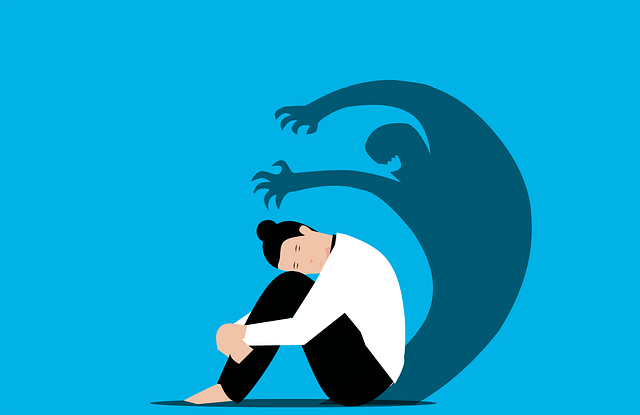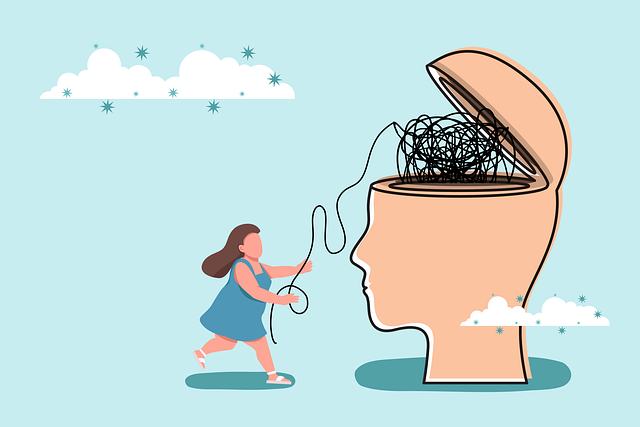This section emphasizes the critical need for a nuanced approach to mood regulation strategies for adults who have experienced domestic violence, highlighting the importance of therapy and evidence-based practices like compassion cultivation and Cognitive Behavioral Therapy (CBT). CBT equips individuals with techniques for stress management and trigger recognition. Mindfulness and meditation techniques offer safe spaces to connect with the inner self and cultivate present-moment awareness, reducing trauma-related stress and anxiety. Long-term recovery requires strategies promoting emotional stability, including self-awareness exercises, mindfulness practice, and mind over matter principles, with tailored support from mental health professionals specializing in Therapy for Adults Domestic Violence.
Mood regulation strategies are crucial for adults who have experienced domestic violence, aiming to enhance emotional well-being and foster resilience. This article explores effective approaches to navigate and manage mood swings, offering a comprehensive guide for recovery. We delve into the impact of domestic violence on mental health, introducing Cognitive Behavioral Therapy (CBT) as a powerful tool for mood management. Additionally, mindfulness techniques and building resiliency are highlighted as long-term strategies post-domestic violence.
- Understanding Mood Regulation: The Impact of Domestic Violence on Emotional Well-being
- Cognitive Behavioral Therapy (CBT): A Powerful Tool for Mood Management
- Mindfulness and Meditation Techniques to Calm the Mind
- Building Resiliency: Strategies for Long-term Mood Regulation Post-Domestic Violence
Understanding Mood Regulation: The Impact of Domestic Violence on Emotional Well-being

Understanding Mood regulation strategies requires a nuanced approach, especially when addressing the profound impact of domestic violence on emotional well-being. This complex issue significantly disrupts an individual’s capacity for emotional regulation, making it imperative to seek professional help. Therapy for adults who have experienced domestic violence plays a pivotal role in healing and recovery. Through evidence-based practices such as compassion cultivation, individuals can learn to manage their emotions more effectively. These therapeutic interventions not only help in processing traumatic experiences but also equip clients with tools to navigate future challenges, fostering better emotional resilience.
The significance of risk assessment for mental health professionals cannot be overstated when working with this population. Recognizing the potential for ongoing abuse or threats, professionals must employ specialized strategies to ensure client safety while facilitating emotional regulation. By integrating compassion cultivation practices into therapy, adults who have endured domestic violence can begin to cultivate a sense of safety and self-compassion, laying the groundwork for sustained recovery and improved overall mental health.
Cognitive Behavioral Therapy (CBT): A Powerful Tool for Mood Management

Cognitive Behavioral Therapy (CBT) is a highly effective tool for managing and regulating mood, especially in individuals who have experienced domestic violence as adults. CBT focuses on identifying and changing negative thought patterns and behaviors that contribute to emotional distress and poor mental wellness. By challenging distorted thinking and replacing it with more realistic and adaptive thoughts, CBT enables people to improve their emotional well-being and develop better coping strategies.
This therapy for adults has been extensively studied and proven successful in various settings, including trauma cases. Through structured sessions led by a trained therapist or even within the framework of mental wellness coaching programs, individuals learn to recognize triggers, manage stress, and enhance their overall mood regulation. CBT’s practical approach equips people with emotional well-being promotion techniques that can be applied daily, fostering resilience and a sense of control over one’s life.
Mindfulness and Meditation Techniques to Calm the Mind

In today’s fast-paced world, mindfulness and meditation techniques have emerged as powerful tools to calm the mind and regulate mood. These practices, often integral parts of therapy for adults who have experienced domestic violence, offer a safe space to connect with one’s inner self and cultivate present-moment awareness. By focusing on the breath, bodily sensations, or specific thoughts without judgment, individuals can break free from the cycle of stress and anxiety that often accompanies traumatic experiences.
Incorporating regular mindfulness meditation into one’s Self-Care Practices can be a game-changer in preventing Burnout Prevention Strategies for Healthcare Providers. It helps to reduce mental clutter, enhance emotional resilience, and foster a deeper sense of inner peace. When practicing Mindfulness Meditation, individuals are encouraged to observe their thoughts as passing clouds in the sky, allowing them to let go of negative or intrusive thoughts and cultivate a state of profound relaxation. This, in turn, can lead to better coping mechanisms and improved overall well-being.
Building Resiliency: Strategies for Long-term Mood Regulation Post-Domestic Violence

After experiencing domestic violence, many adults struggle with mood regulation and building resilience. Long-term recovery involves implementing strategies that foster emotional stability and self-healing. One effective approach is incorporating self-awareness exercises into daily routines. By practicing mindfulness and focusing on the present moment, individuals can learn to manage their reactions and emotions more effectively.
Additionally, applying mind over matter principles empowers survivors to reframe negative thoughts and beliefs. This process helps in breaking free from traumatic patterns and cultivating a sense of empowerment. For mental health professionals assessing risk in these cases is crucial. They play a vital role in guiding individuals through therapy for adults domestic violence by offering tailored support and resources for long-term mood regulation.
In navigating the complexities of domestic violence, mood regulation strategies are essential tools for recovery. By combining evidence-based therapies like Cognitive Behavioral Therapy (CBT) with practices such as mindfulness and meditation, individuals can build resilience and effectively manage their emotional well-being. For those seeking support, exploring these strategies under the guidance of professionals specialized in therapy for adults who have experienced domestic violence is a vital step towards healing and a brighter future.














